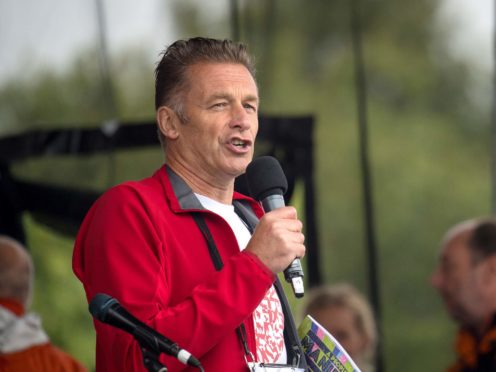The killing of Cecil the lion has become an “iconic symbol” of the “grotesque wastage of wildlife” caused by trophy hunting around the world, Chris Packham has said.
The Winterwatch host, 59, said that legal hunting and poaching should both be consigned to “history’s dustbin”.
Cecil was a 13-year-old lion who was killed by a US big game hunter and dentist in Zimbabwe in 2015, while he was the subject of a long-term research programme by Oxford University.
His death prompted anger from politicians and conversationalists, and protests outside the dental practice of the hunter, Walter Palmer, in Minnesota.
Packham, who is narrating a National Geographic documentary about the animal, said: “Cecil has become an iconic symbol for the grotesque wastage of wildlife at the hands of humans whilst many people struggle and strive to protect the world species a tiny psychopathic minority still take inextricable pleasure in killing them and in the most bizarre and horrific aftermath, they nail their severed heads to their walls.
“It’s a ghastly anachronism that should be consigned to history’s dustbin.”
Activist and presenter Packham also stressed the importance of protecting big cat populations around the world.
He said: “I think we all need to retain our hope that there are fragments of our world which remain as wilderness untouched by the human intervention, undamaged and still pristine.
“And for these wildernesses to persist they would need functional eco systems and for eco systems to be functional you need keystone predators.
“None are prominent and perfect than our big cats. If there isn’t a tiger out there burning bright in the forest of the night then that will be a very long and gloomy night for human kind.”
He claimed it was “conceivable” but “abjectly miserable” that big cats could go extinct given the current rates of decline, and urged people to do everything they could.
“The main challenges are undoubtedly all human related,” he said.
“Principally habitat loss as our growing population demands more and more land for agriculture.
“Secondly the human-wildlife conflict whereby humans and predators compete for resources.
“And lastly, and worst of all, the direct impact of poaching and trophy hunting both of which must be addressed immediately if there is any hope that our big cat species will continue to prosper.”
Chris Packham narrates Cecil: The Lion King, as part of Big Cat Week on National Geographic WILD, which runs from February 1-5.
